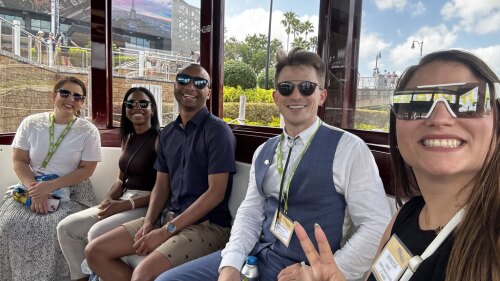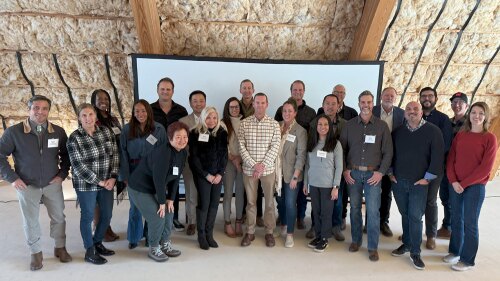In an emerging “gig” economy, with each individual developing his or own brand, does leadership still matter? At the ULI Fall Meeting in Boston, Ralph Boyd, ULI senior resident leadership fellow, moderated a panel of industry notables discussing the critical importance of leadership.
Boyd kicked off the session by explaining ULI’s goals for its enhanced focus on leadership, which include:
- Fostering leadership learning through content development and curriculum delivery across all ULI platforms;
- Facilitating and connecting members and staff to experiential leadership development opportunities;
- Developing a robust leadership pipeline to serve the next generation of ULI members;
- Connecting new and young diverse members to ULI Key Leaders;
- Advancing diversity inclusion within the Institute and industry; and
- Nurturing a culture of continuous teaching, learning, mentoring, and purposeful outreach throughout ULI’s membership.
While there are many leadership styles suiting different companies and cultures, the panelists agreed that every effective leader excels at creating, communicating, and implementing a vision for his or her organization. The ubiquitous organizational mission statement should encompass that vision, with diverse teams working collaboratively to carry out the organization’s mission every day.
Each panelist came to that conclusion via a different path. Wayne Ratkovich, president and chief executive officer of the Ratkovich Company, and a ULI Life Trustee, began his career rehabilitating industrial buildings in Los Angeles. But his life’s work took a different turn in the 1970s when he acquired an old office building in the city for $5 per square foot ($54 per sq m) and proceeded to renovate it.
“It was one of the first historic buildings in L.A. to be rehabbed, and after that, I couldn’t go back to industrial buildings,” he said. “We changed everything, developing a new mission statement that we still use today: to profitably produce developments that improve the quality of urban life.”
Sherman Ragland, managing director of Tradewinds Realty Partners, also noted the importance of a leader who has a vision. “Those are the leaders who stand out,” he said. As an example, he cited his former employer, Washington, D.C., developer Oliver T. Carr, whose company’s mission was to “rebuild the Capital City.”
Ragland began his career selling IBM electric typewriters in Baltimore. He recognized one customer as James W. Rouse, the developer of Columbia, Maryland, and began a conversation that quickly led to Ragland getting a job offer. Ragland took a different path, earning an MBA from the Wharton School and selling Federal Communications Commission (FCC) spectrum licenses, but later followed his passion to pursue a real estate career and help redevelop downtown Baltimore.
Amy Price, president and chief executive officer of Bentall Kennedy, was not sure what she wanted to do when she graduated from college, but she knew she wanted to learn about business, so she took a job at Morgan Stanley.
“I just happened into the real estate group, and in hindsight it was lucky,” she said. Six years ago, she joined Bentall Kennedy as it was merging U.S. and Canadian companies, with much discussion about what the company culture would be. “We’re in a people business—we invest capital rather than building things—and I continually develop leadership within my teams,” she said.
Dick Burns became CEO, president, and trustee of the NHP Foundation after a long career in real estate investment. He succeeded in turning around a demoralized organization so that it could carry out its mission of preserving and increasing availability of service-enriched affordable rental housing. Complex affordable housing deals involve many stakeholders and participants, requiring an organization that can “collaboratively move among these different constituencies,” he noted. “My job is the best: I sit back and watch other people work.”
So what does it take to become a leader? According to Boyd, the leaders of today and tomorrow are people with the ability and willingness to:
- Engage others;
- Communicate effectively;
- Facilitate collaboration and engender trust;
- Build effective relations with everyone that matters;
- Think strategically and tactically;
- Build inclusive teams;
- Develop and support cultural competency; and
- Innovate




